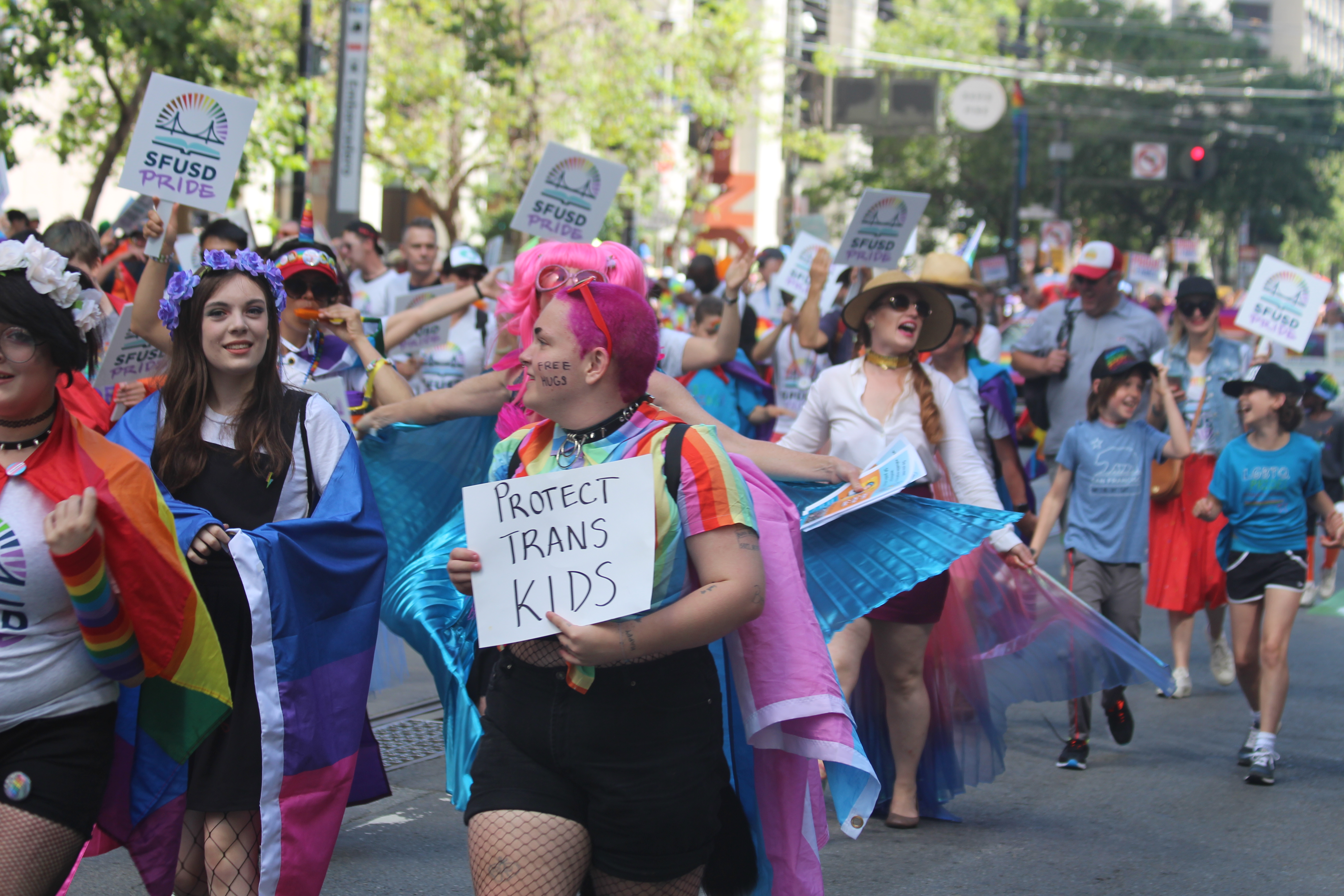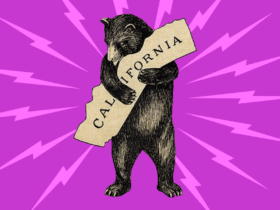Good news, Californians! We’re thrilled to announce that Senate Bill 362 (SB 362) – a landmark bill sponsored by Privacy Rights Clearinghouse and authored by Senator Josh Becker – has successfully passed through the Senate! This milestone isn’t just another legislative step; it’s a leap toward restoring control over your personal information in our digital world.
At its core SB 362 is all about giving you more power over your personal information. Building on California’s existing data broker registry, it goes one step further by introducing a game-changing feature: the “accessible deletion mechanism.” With a single click, you will be able to ask every data broker in the registry to delete any information they have about you. It’s about putting you in the driver’s seat of your own data.
Now that we’ve achieved this significant success in the Senate, SB 362 will move on to the California Assembly. There, it will undergo review by various committees, and we’re hopeful that the importance of data privacy resonates with the Assembly as it did with the Senate. If the Assembly and the Governor echo our enthusiasm for this bill, it could soon become law!
It’s important to understand not just what SB 362 is, but also how it makes a real, positive difference in your lives. Let’s explore how it affects various communities, starting with the issues of reproductive justice and LGBTQIA+ rights.
SB 362 is a crucial instrument in safeguarding reproductive justice. Your personal reproductive health information should be a matter of your privacy, not a commodity for data brokers. This bill empowers you to halt the spread of your sensitive data, letting you make personal decisions without fear of unwanted attention or discrimination.
In a post-Roe world, with reproductive healthcare criminalized in many parts of the country, the need to protect individuals seeking such healthcare is more urgent than ever. Disturbingly, data brokers have been found selling information on individuals visiting facilities like Planned Parenthood and even trading in reproductive health information. SB 362 aims to empower you to put an end to this gross violation of privacy.
We’re striving for a world where your private health history doesn’t result in targeted ads, where your decision to seek out reproductive healthcare doesn’t put you at risk and where decisions about your life aren’t made based on your reproductive health. SB 362 is a stride towards creating that world.

SB 362 is unwavering in its commitment to the rights and privacy of the LGBTQIA+ community, particularly transgender and non-binary Californians. Personal data, especially when disseminated widely, can pose severe risk to the most vulnerable among us.
Transgender and non-binary individuals, particularly youth, face a daunting reality. As gender-affirming care is increasingly under attack and laws targeting transgender families are being passed across the country, their personal information — like their chosen name and gender identity — can expose them to physical harm and discrimination. SB 362 empowers these individuals with the ability to curtail the spread of this sensitive information, helping protect themselves from further harm.
SB 362 is also a tool to fight discrimination based on sexual orientation or gender identity. Your personal information should not be a weapon used against you in employment, housing, or access to services. SB 362 reminds us that in California, privacy isn’t a privilege, it’s a right that you must be able to actively uphold.

When it comes to children’s privacy, the stakes are uniquely high. Our youngest Californians are often the most vulnerable to data misuse, yet they are growing up in an era where their lives are being documented online from the earliest stages.
SB 362 empowers parents and guardians to protect their children’s digital footprint by providing a mechanism to delete data collected about their children. This can help safeguard their future, as the misuse of children’s data could affect everything from college admissions to employment opportunities.
In the context of immigrant communities, SB 362 represents a formidable safeguard. These communities, often on the receiving end of intense scrutiny and discrimination, bear unique vulnerabilities when it comes to data privacy.
Personal data can hold immense sway over an immigrant’s life. It’s not just a matter of privacy, but one of security and freedom. From information about immigration status to cultural and linguistic identities, personal data can unwittingly paint targets on the backs of immigrants, exposing them to unjust profiling and discrimination. Unauthorized access or misuse of data, especially around immigration status, can lead to serious, life-altering consequences for these individuals and their families.
By allowing immigrants to request deletion of their personal data from data broker registries, SB 362 creates an additional layer of protection against profiling and discrimination, a step towards a world where personal data isn’t weaponized against vulnerable communities.
Students and recent graduates are often navigating their way through digital landscapes as they transition from the educational realm into their professional lives. During this crucial period, personal data can make them a target for marketing strategies, potential employers, and even predatory practices.
Through SB 362, students and recent graduates gain the power to manage their data on their own terms. They can choose to prevent it from being spread further without their consent, guarding against potential misuse. This ability to control one’s data can ease the transition into the professional world and ensure equal opportunities in the job market.
SB 362 is a powerful ally for Indigenous communities. These communities, rich in cultural heritage, often find themselves at the crossroads of historical trauma and modern challenges, and data privacy is a crucial component of their ongoing struggle for sovereignty and self-determination.
Personal data holds immense power in preserving the cultural identity, history, and languages of Indigenous people. It’s used to maintain community records, trace ancestral roots, and uphold traditions. However, the widespread dissemination of this data without consent can open avenues for exploitation and cultural appropriation.
SB 362 enables Indigenous communities to take control of their data, preventing its unauthorized spread and use. In a time when Indigenous cultures and histories are frequently exploited, the power to control the narrative of their own story is invaluable.
For rural communities, SB 362 ensures their unique needs and vulnerabilities aren’t overlooked in the broader conversation about data privacy. Rural residents often face unique challenges related to digital access and literacy, and can be disproportionately impacted by breaches of data privacy due to a lack of resources to protect their information.
SB 362 provides a mechanism for rural residents to gain more control over their personal data. Whether it’s information about farming practices, local businesses, or personal health data from rural hospitals, the ability to prevent this data from being spread without their consent is a significant step towards digital autonomy.
Gig economy workers stand to gain a significant level of protection with SB 362. These workers often operate in a digital ecosystem where their personal data — from their location to their work patterns — is constantly being tracked, analyzed, and often sold without their consent. This exposes them to various risks, from wage theft to predatory practices.
By empowering gig workers with the ability to halt the spread of their personal data, SB 362 offers a level of defense against these exploitative practices. It’s a move towards a future where work in the digital economy doesn’t come at the cost of one’s privacy and dignity.
Alright, so we’ve talked about a lot of specific groups that stand to benefit from SB 362, but let’s not forget: this bill empowers every single Californian. No matter who you are or where you come from, if you’ve ever wished for more control over your personal data, this legislation is a big win for you.
SB 362, the Delete Act, offers a way to pull back the curtain, take a look at these shadowy data brokers, and tell them, “Hey, I don’t want you selling my data.” And you know what? They’ll have to listen. The power to decide who can and can’t handle your personal information will be, finally, in your hands.
For all you privacy-conscious Californians out there, it’s about choice and control. It’s about making sure that our personal stays just that – personal. So let’s embrace this win and keep fighting for our right to privacy!
SB 362 represents a significant step forward in safeguarding Californians’ digital rights. By offering individuals control over their data, we’re not only protecting their privacy but empowering them to dictate the terms of their digital lives.
However, we still have a way to go. If you believe in a future where Californians can control their own data, we urge you to voice your support for SB 362. Contact your Assembly member and let them know how crucial this bill is. Together, we can create a safer digital environment for all Californians.















